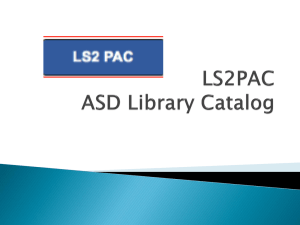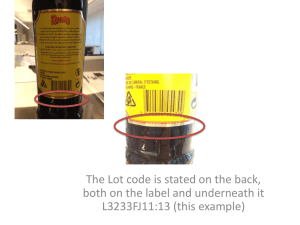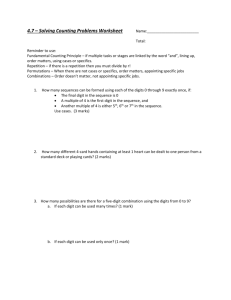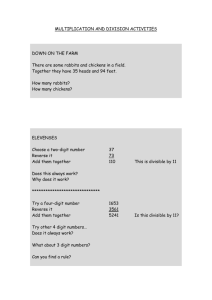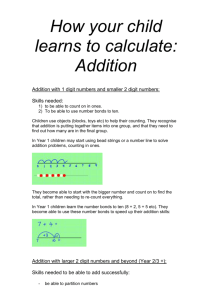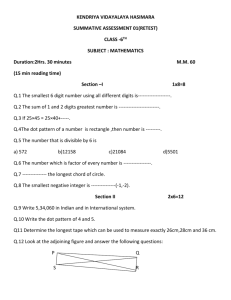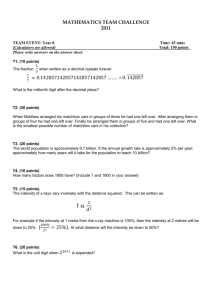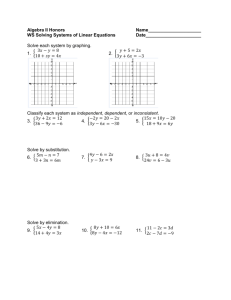S3LI03_060 IMS_Dialed Digit Extraction
advertisement
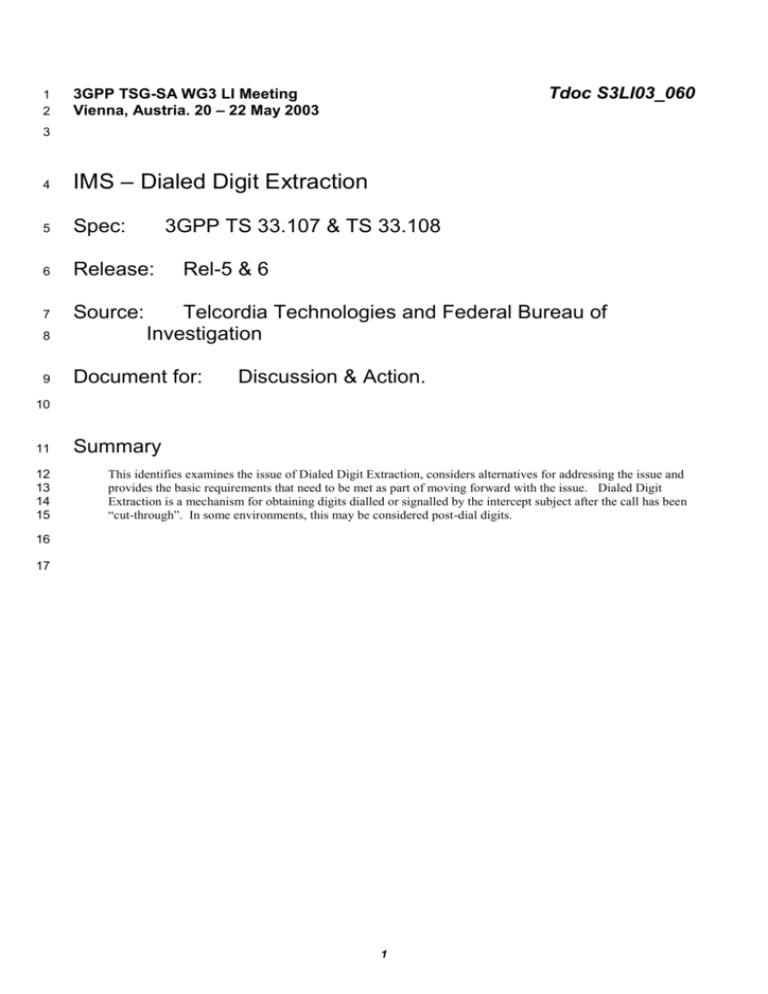
1 2 Tdoc S3LI03_060 3GPP TSG-SA WG3 LI Meeting Vienna, Austria. 20 – 22 May 2003 3 4 IMS – Dialed Digit Extraction 5 Spec: 6 Release: 7 Source: 8 9 3GPP TS 33.107 & TS 33.108 Rel-5 & 6 Telcordia Technologies and Federal Bureau of Investigation Document for: Discussion & Action. 10 11 12 13 14 15 Summary This identifies examines the issue of Dialed Digit Extraction, considers alternatives for addressing the issue and provides the basic requirements that need to be met as part of moving forward with the issue. Dialed Digit Extraction is a mechanism for obtaining digits dialled or signalled by the intercept subject after the call has been “cut-through”. In some environments, this may be considered post-dial digits. 16 17 1 1 A. Introduction 2 3 4 A capability needs to be supported for IMS calls involving access of post connection dialled signals and reporting those signals to the LEA1. Currently such a capability (also called dialled digit extraction) is not addressed in TS 33.107 and TS 33.108. 5 6 This contribution identifies the key requirements that need to be met to satisfy the reporting of post connection dialled digits. 7 B. Discussion 8 9 10 11 A capability called Dialled Digit Extraction needs to be supported in IMS, as this is a need from the LEAs. Dialled Digit Extraction entails accessing post-cut-through dialled digits and reporting those digits to the LEA. DTMF tones sent by the intercept subject are carried using the RFC 2833 mechanism. The network operator is free to choose any method for intercepting the digits. The important needed capability is the reporting of these interecepted digits. 12 Reporting may be performed on one of the following basis: 13 1. digit by digit basis and a post-cut-through digit is detected, or 14 2. digit accumulation basis in which digits are reported when the first of the following occurs: 15 a maximum of 32 post-cut-through dialled digits are accumulated in the buffer 16 20 seconds have elapsed since detection of the first post-cut-through digit in the buffer; or 17 the call or session is released. 18 19 C. Recommendations 20 21 22 It is recommended that S3LI group consider the issues described in Section B of this contribution and work towards resolving these issues. In particular, it is suggested that the group select from option 1 or 2 of Section B of this contribution to be used in forward path. 1 “Law enforcement agencies require access to call associated data such as all signals emitted by the target, including post-connection dialled signals.” (IUR Requirement 1.4.4). 2

